September 30, 2025

The essential skills that every RBT technician must master encompass:
These skills are not merely beneficial; they are crucial for implementing effective interventions, fostering positive client relationships, and ensuring high-quality care. Ultimately, they lead to improved outcomes for individuals served by RBTs.
Are you aware of the impact that mastering these skills can have on your practice? Consider how enhancing these competencies can transform your approach and elevate the quality of care you provide.
Mastering the art of behavior analysis is a significant undertaking, particularly for Registered Behavior Technicians (RBTs) who are integral in fostering positive outcomes for individuals with diverse needs. In light of the increasing demand for effective behavioral support, this article examines ten essential skills that every RBT must develop. These skills range from the foundational principles of Applied Behavior Analysis to the intricate art of communication and crisis management. As RBTs navigate this dynamic field, how can they ensure they possess the competencies required to excel? This exploration not only highlights the necessity of these skills but also emphasizes the pivotal role RBTs play in delivering impactful support.
Registered Behavior Technicians must master the core principles of , including reinforcement, punishment, and extinction. Why is this mastery crucial? These concepts direct the creation of efficient interventions and assist practitioners in comprehending how actions are acquired and altered. By understanding these principles, RBT technicians are equipped to apply strategies that foster positive behavior change in individuals effectively. This expertise not only enhances their professional capabilities but also significantly impacts the lives of those they support.
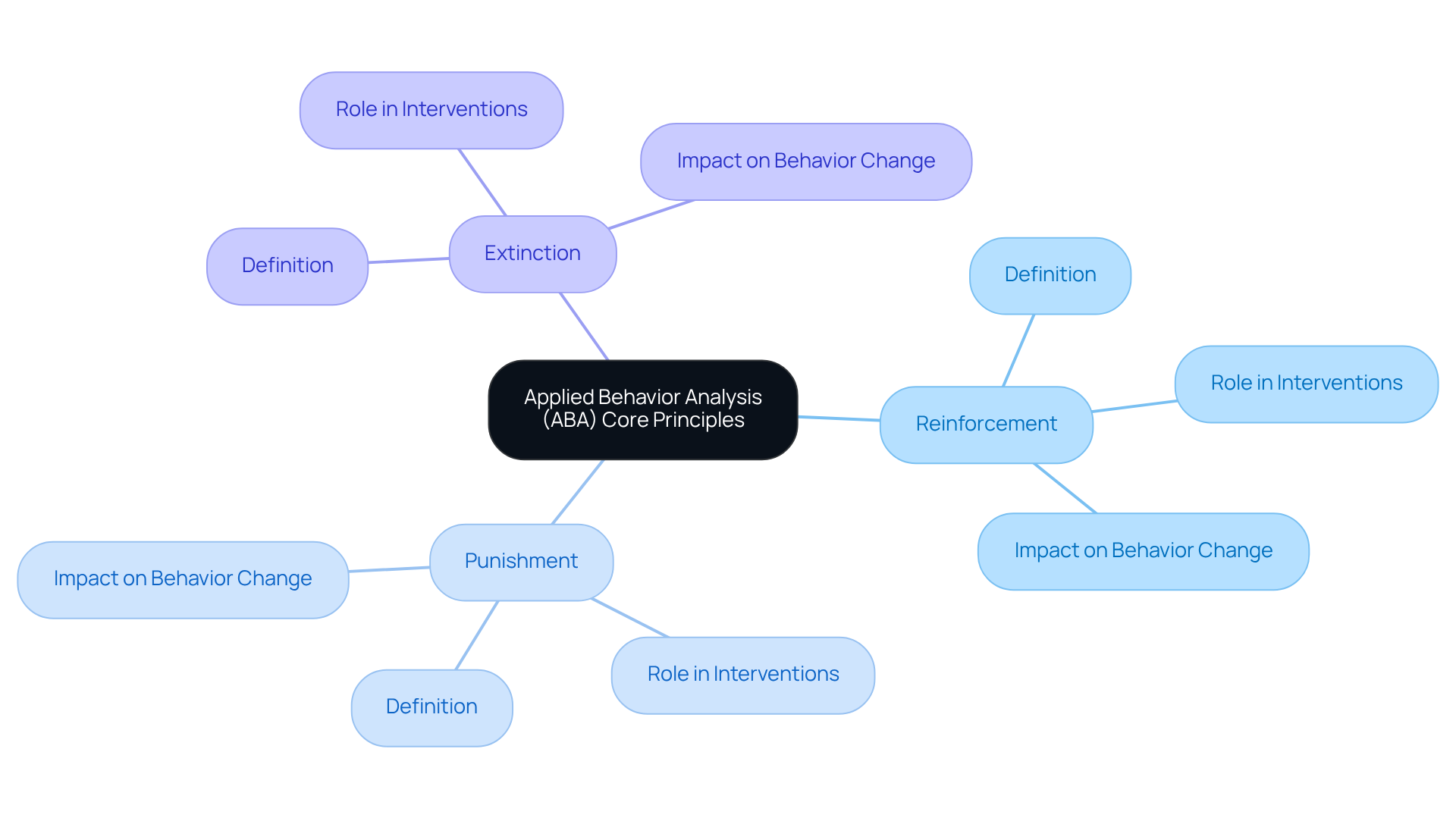
RBT technicians must cultivate robust verbal and non-verbal to engage effectively with individuals, families, and colleagues. Active listening, [offering clear guidance](http://hireaba.today/blog-posts/10-benefits-of-an-applied-behavior-analysis-certificate-for-career-growth), and employing suitable language that resonates with clients are essential components of this skill set. Effective communication not only nurtures trust but also encourages individuals to participate actively in the therapeutic process.
Consider the impact of your communication style—are you fostering an environment where clients feel heard and valued? By honing these skills, the RBT technician can significantly enhance the therapeutic experience, ultimately leading to better outcomes for those they serve.
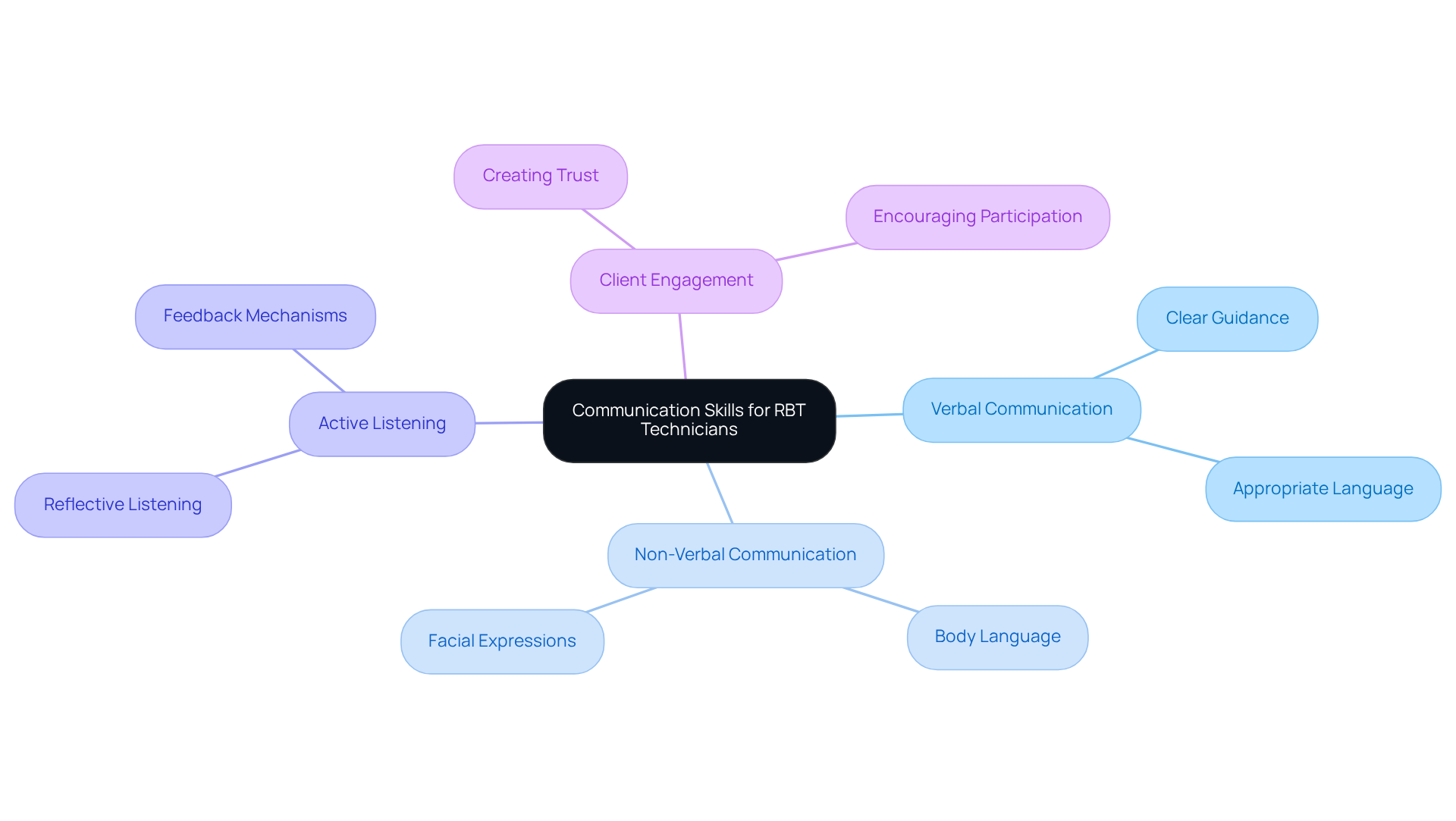
RBT technicians must master various data collection methods, such as frequency counts, duration recording, and interval recording. Why is this crucial? Examining this information empowers RBT technicians to assess progress effectively and determine the efficacy of their strategies. Regular data reviews not only enhance treatment evaluations but also support the creation of tailored to each client's needs. Embrace the power of data—it's essential for driving successful outcomes in behavioral health.
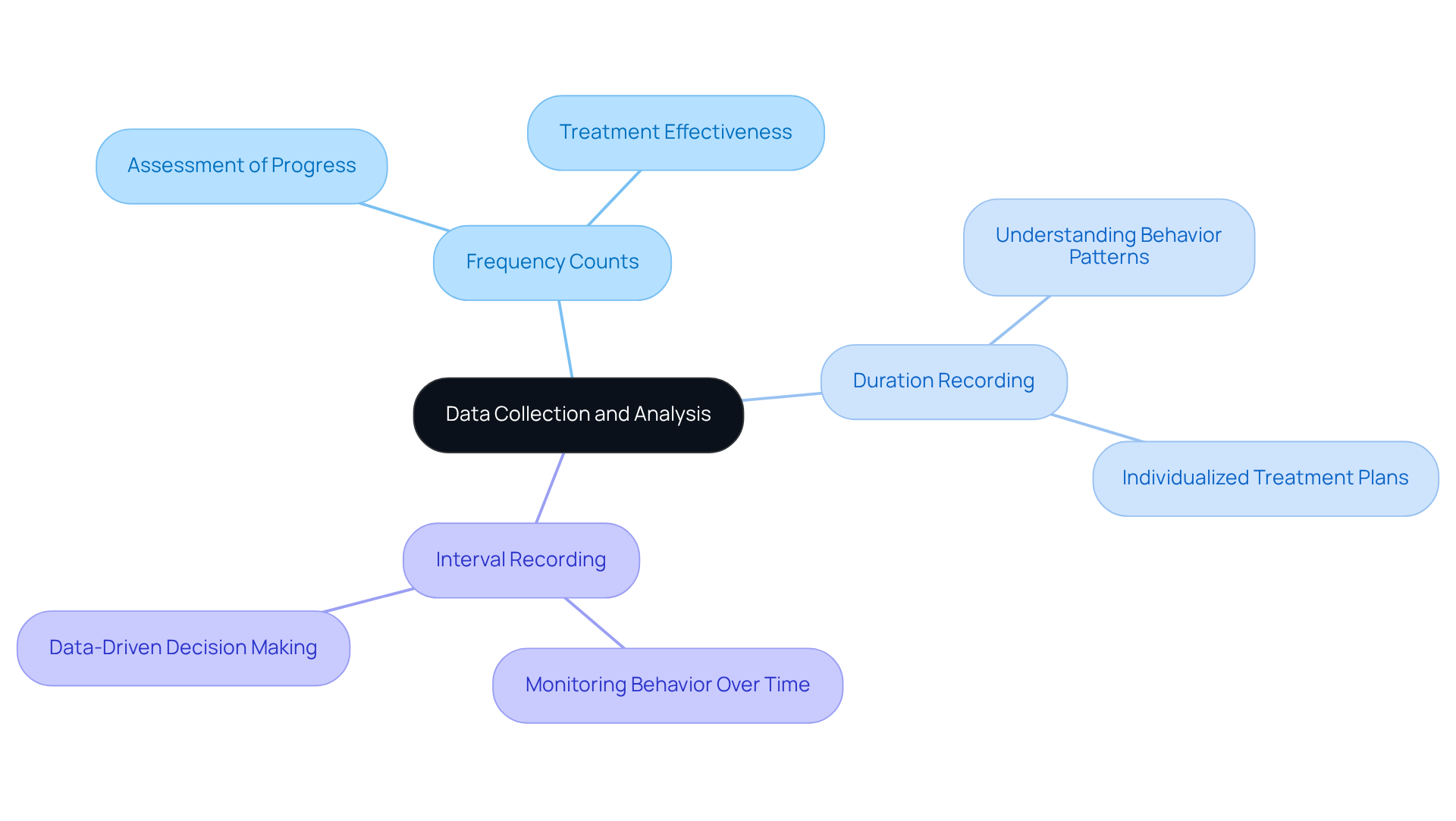
RBT technicians must accurately implement behavior intervention plans while being prepared to adjust these plans as necessary. This requirement underscores the importance of a of the objectives outlined in the BIP, as well as the ability to adapt strategies based on real-time observations and participant reactions. Flexibility is not merely beneficial; it is essential for achieving desired outcomes.
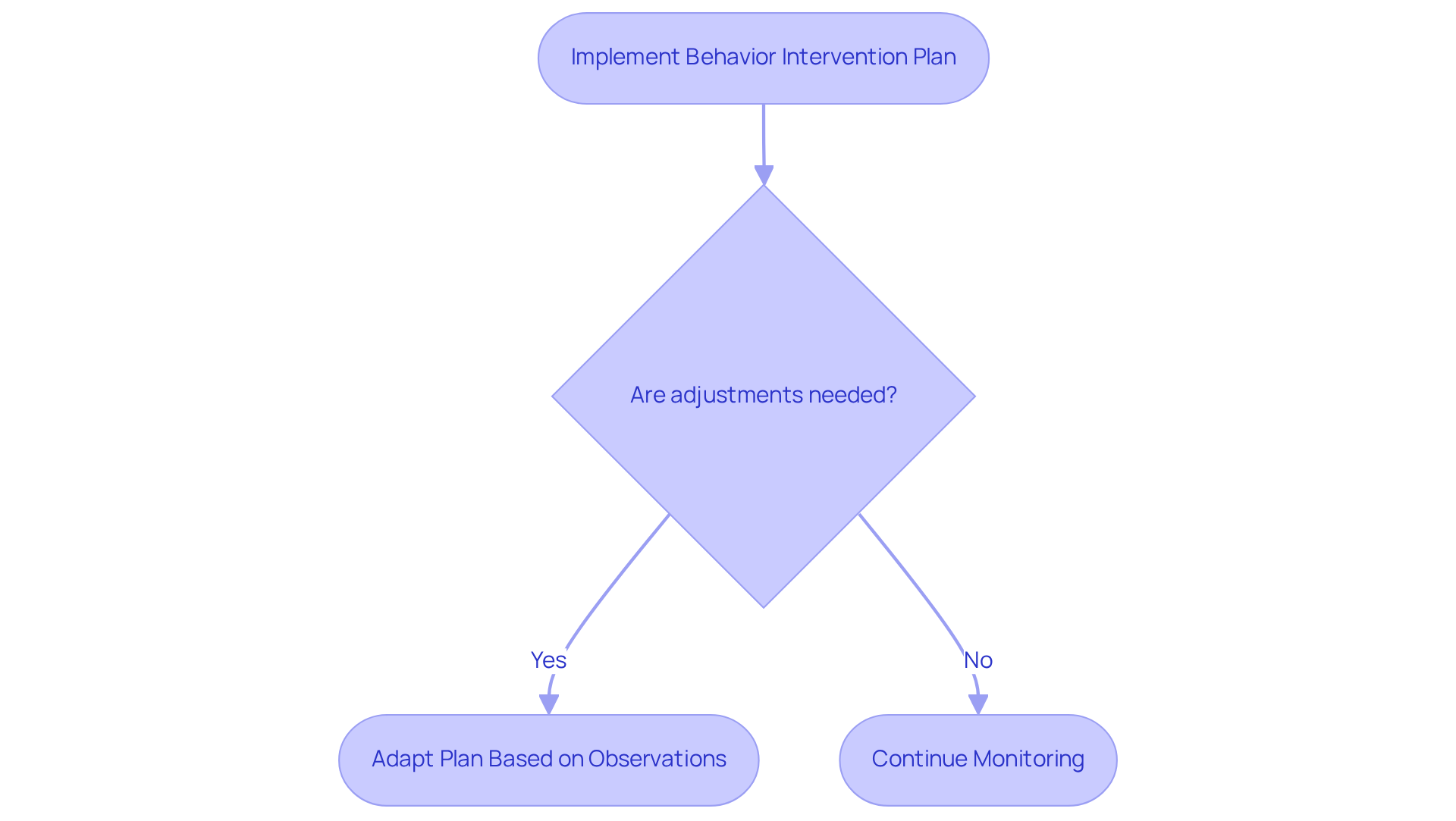
RBT technicians must familiarize themselves with the established by the Behavior Analyst Certification Board (BACB). For an RBT technician, understanding issues related to:
is not just recommended; it is essential. These standards are crucial for building trust with clients and ensuring their well-being.
Consider the impact of maintaining these ethical practices—how do they influence your professional integrity and the trust your clients place in you? Embrace these guidelines as a foundation for your practice and a commitment to excellence in service delivery.

In today's evolving healthcare landscape, the demand for Board Certified Behavior Analysts (BCBAs) is on the rise. RBT technicians must develop the essential skills to collaborate effectively with a diverse range of professionals, including BCBAs, educators, and therapists. Effective teamwork is not merely beneficial; it is crucial. It involves sharing insights, discussing progress, and coordinating interventions. This collaborative approach ensures that individuals receive comprehensive support tailored to their specific needs.
Are you currently facing hiring challenges in your organization? Consider how a with Hire ABA can streamline your recruitment process, ensuring that your team is equipped with the right professionals to meet these demands. By fostering a culture of collaboration, you not only enhance the quality of care but also drive better outcomes for those you serve.
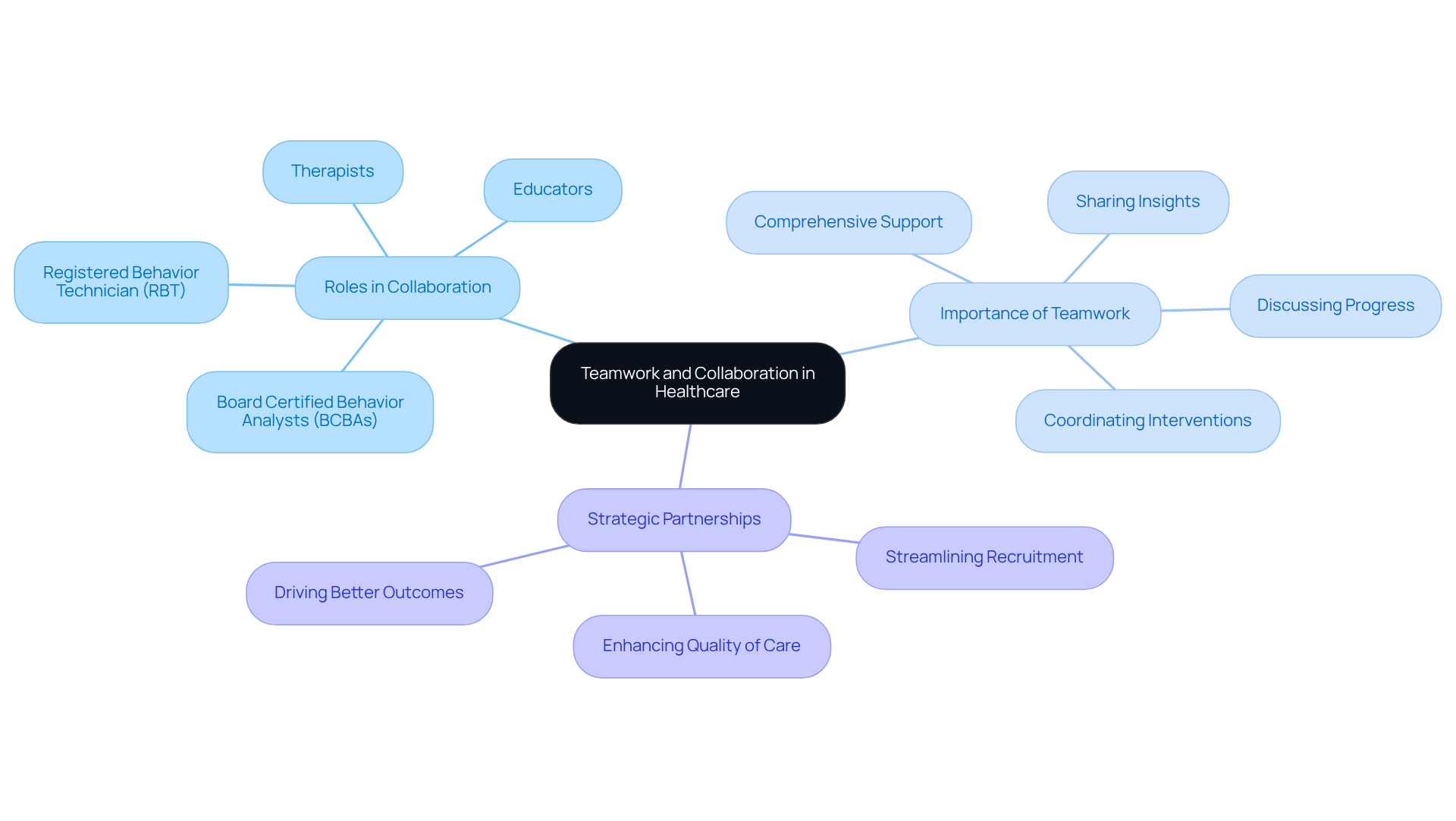
Behavior technicians must be proficient in crisis management techniques, which encompass de-escalation strategies and, when necessary, safe restraint methods. Understanding the triggers for challenging behaviors and having a enables practitioners to respond appropriately, significantly reducing the risk of harm to both individuals and themselves.
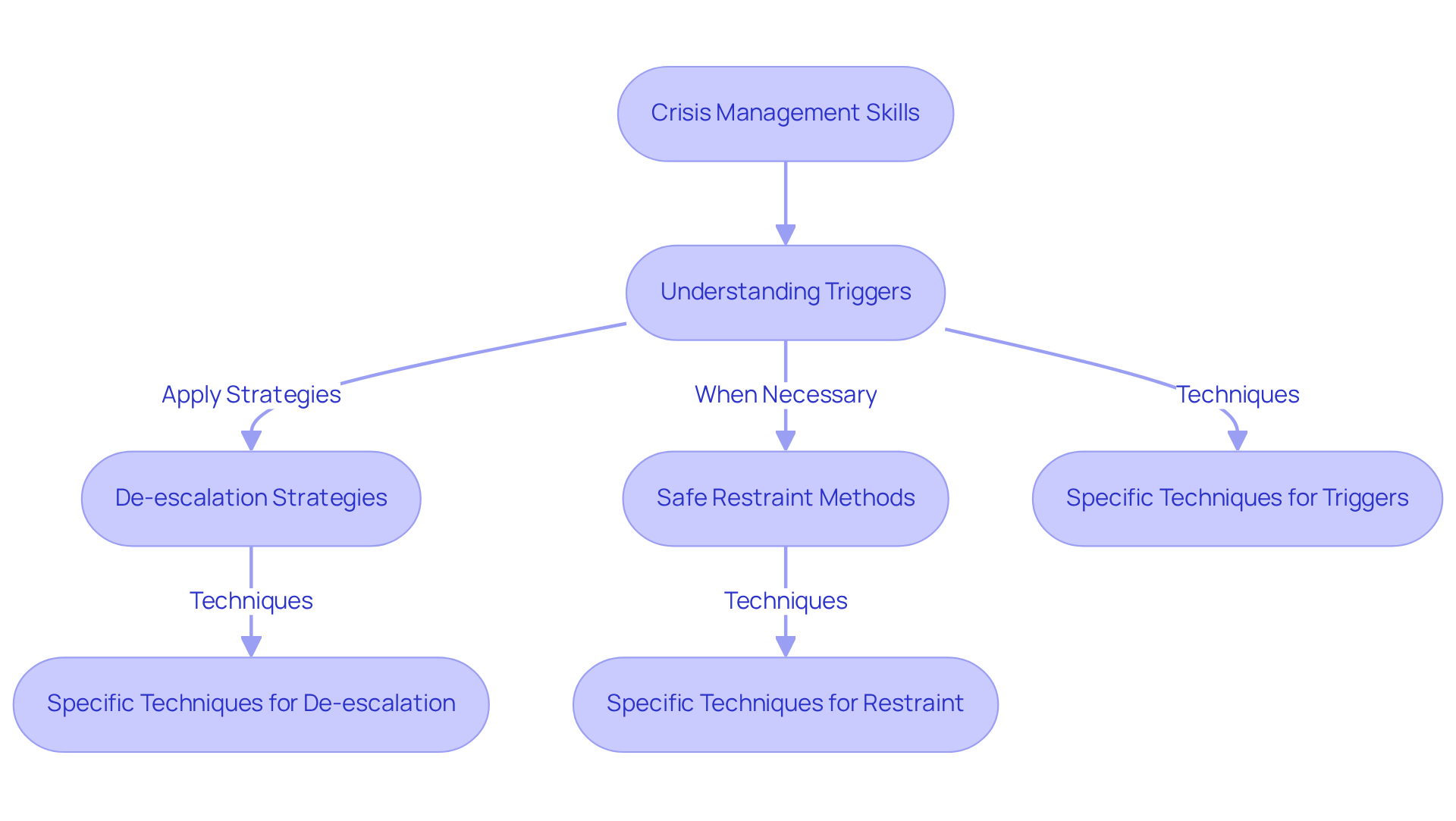
Registered Behavior Technicians must actively pursue opportunities for . This includes:
Staying updated on the latest research and methods in ABA therapy is essential. Such commitment guarantees that RBT technicians can provide the highest quality of support to those they serve. Are you ready to elevate your practice and ensure the best outcomes for your clients?
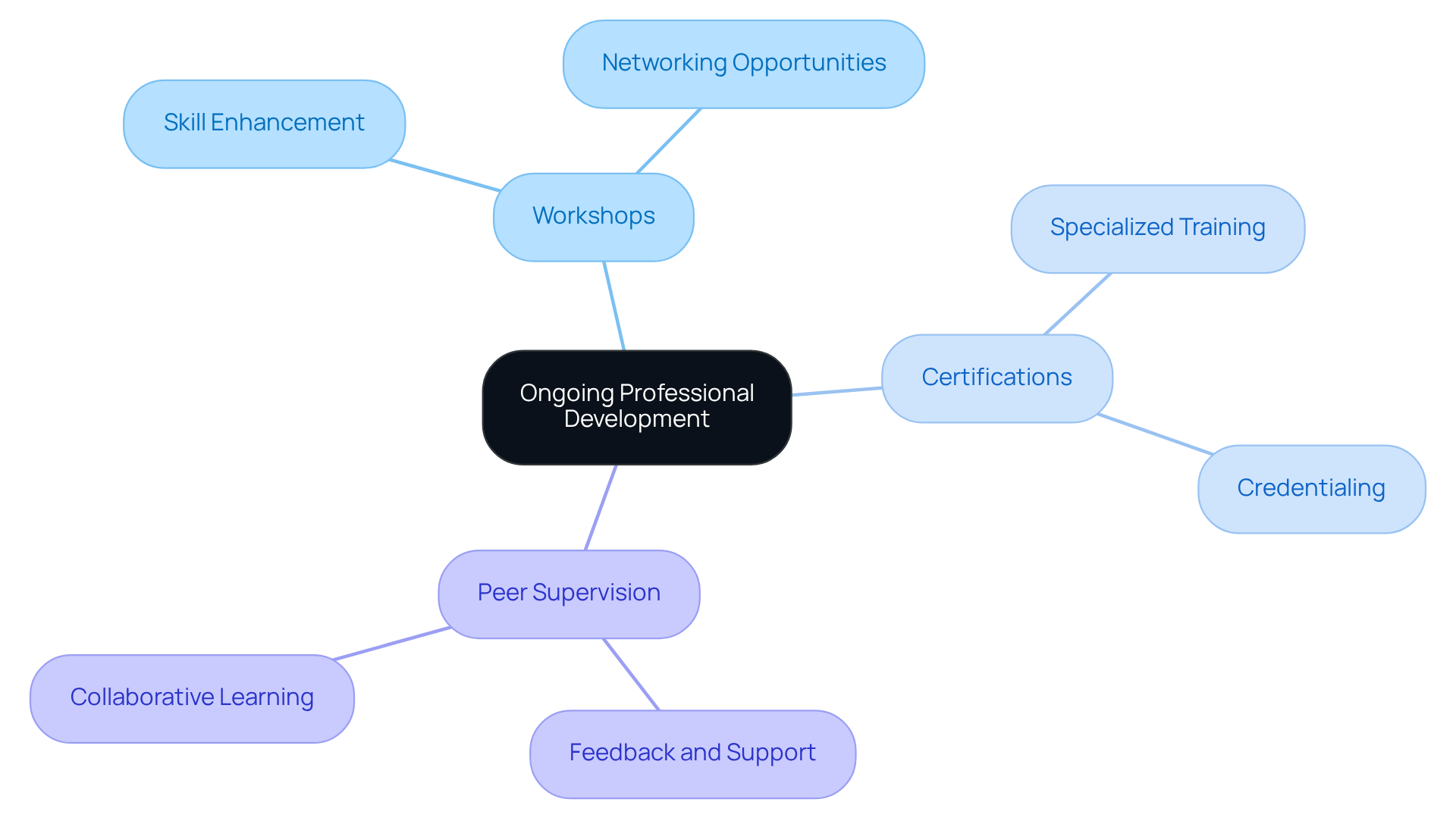
Behavior technicians must grasp the cultural backgrounds of those they serve, recognizing how these factors influence behavior and communication. Understanding , values, and potential biases is essential. Culturally competent care not only fosters trust but also encourages individuals to engage more fully in the therapeutic process.
How can a deeper understanding of cultural contexts transform your approach? Embracing this knowledge is not just beneficial; it is vital for effective practice.
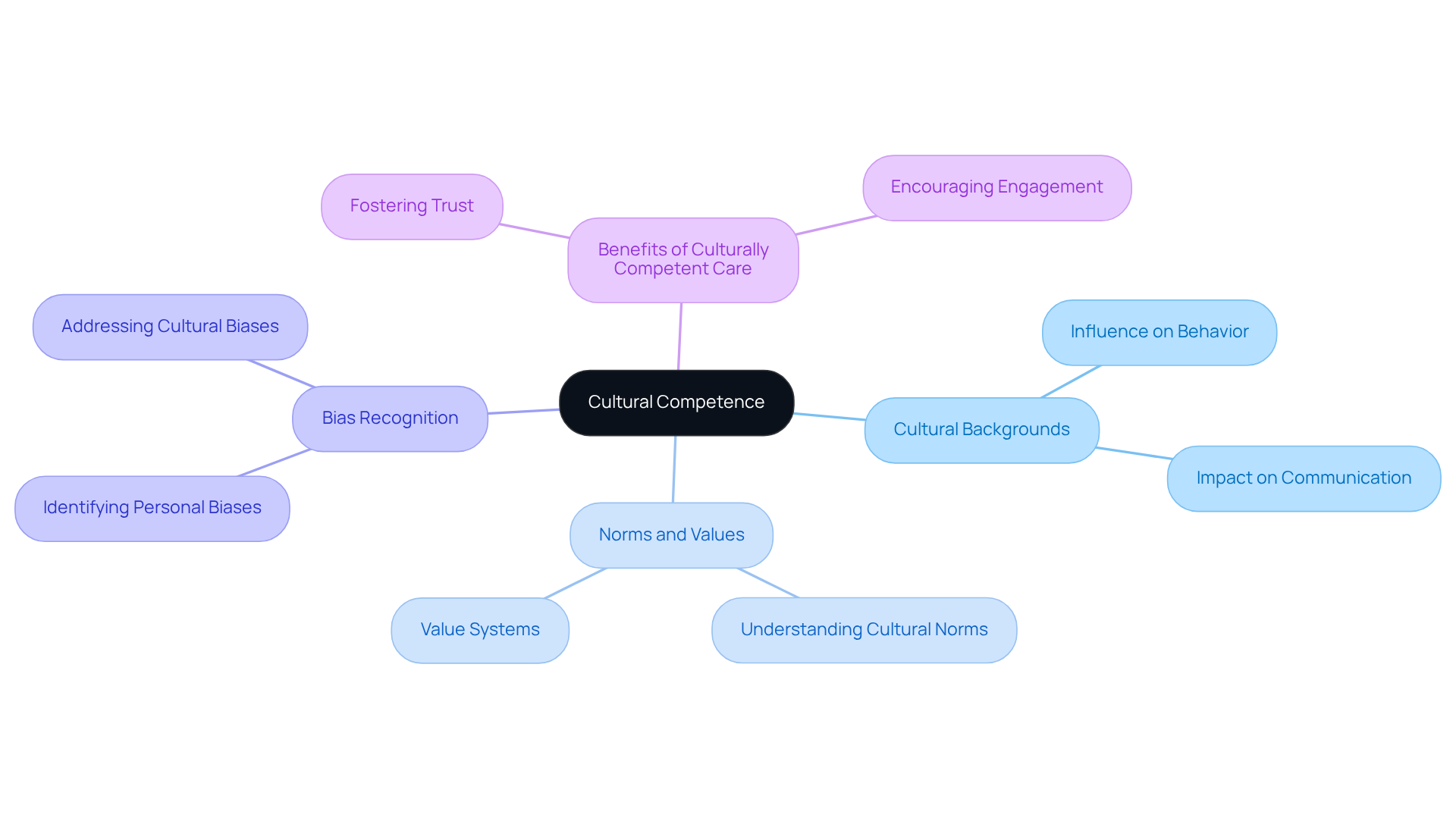
RBT technicians must prioritize self-care strategies to manage stress effectively and prevent burnout. Regular exercise, , and seeking support from colleagues or supervisors are essential components of this approach. By focusing on their own well-being, RBT technicians not only enhance their effectiveness in their roles but also significantly benefit their clients. The commitment to self-care is not merely a personal responsibility; it is a professional imperative that directly influences the quality of care provided.
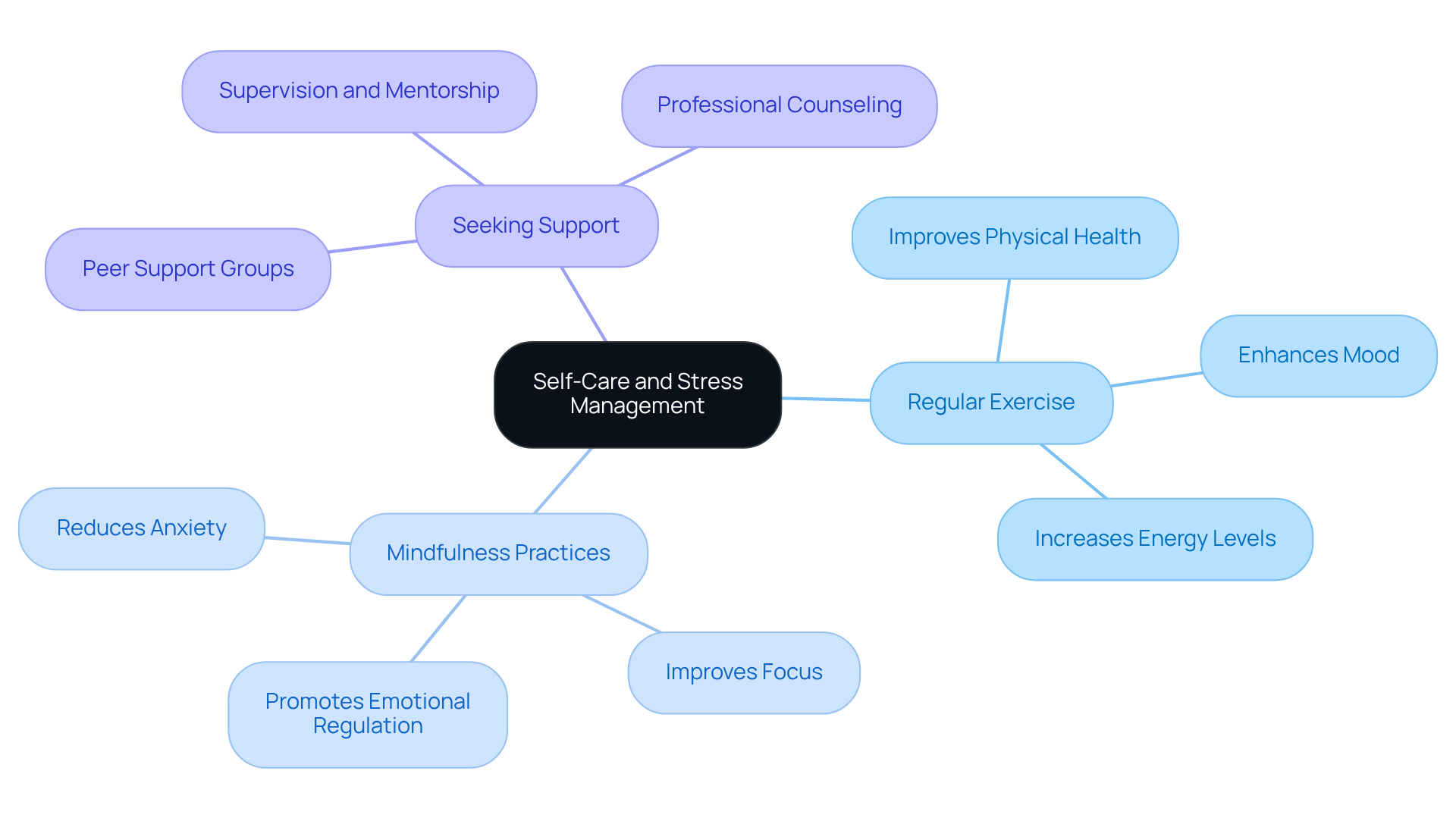
Mastering the essential skills outlined for Registered Behavior Technicians (RBTs) is fundamental for delivering effective behavioral therapy. These competencies, which encompass understanding Applied Behavior Analysis (ABA) principles, fostering communication, collaboration, and self-care, create a solid foundation for RBTs to support individuals in meaningful ways. The ability to adapt behavior intervention plans, uphold ethical standards, and engage in ongoing professional development further enhances their effectiveness in the field.
Key arguments underscore the significance of:
in ensuring successful outcomes for clients. Emphasizing cultural competence allows RBTs to connect with clients on a deeper level, while self-care practices ensure that technicians maintain their well-being, ultimately benefiting those they serve. Each skill contributes to a holistic approach in behavioral health, underscoring the interconnectedness of these competencies.
The call to action is clear: RBT technicians must prioritize the continuous development of these skills to navigate the complexities of their roles effectively. By committing to lifelong learning, fostering collaboration, and embracing ethical practices, RBTs can significantly influence the lives of individuals they support. The journey of mastering these skills not only enhances professional capabilities but also enriches the therapeutic experience, leading to transformative outcomes in the realm of applied behavior analysis.
What are the core principles of Applied Behavior Analysis (ABA) that Registered Behavior Technicians (RBTs) must master?
The core principles of ABA that RBTs must master include reinforcement, punishment, and extinction. Mastery of these concepts is crucial for creating efficient interventions and understanding how behaviors are acquired and modified.
Why is mastery of ABA principles important for RBTs?
Mastery of ABA principles is important for RBTs because it enables them to apply strategies that foster positive behavior change in individuals, enhances their professional capabilities, and significantly impacts the lives of those they support.
What communication skills are essential for RBTs?
Essential communication skills for RBTs include robust verbal and non-verbal communication abilities, active listening, offering clear guidance, and using suitable language that resonates with clients. These skills help to engage effectively with individuals, families, and colleagues.
How does effective communication impact the therapeutic process for RBTs?
Effective communication nurtures trust and encourages individuals to participate actively in the therapeutic process. By fostering an environment where clients feel heard and valued, RBTs can enhance the therapeutic experience and lead to better outcomes.
What data collection methods should RBTs master?
RBTs should master various data collection methods, including frequency counts, duration recording, and interval recording. These methods are crucial for assessing progress and determining the efficacy of strategies used in treatment.
Why is data collection and analysis important for RBTs?
Data collection and analysis are important for RBTs because they empower technicians to assess progress effectively, evaluate treatment strategies, and create individualized treatment plans tailored to each client's needs. Regular data reviews drive successful outcomes in behavioral health.
Our expert recruitment strategies and AI-driven sourcing ensure that you receive top-notch candidates quickly, without compromising on quality. Whether you’re looking for BCBAs, Clinical Directors, or RBTs, we’ve got you covered.